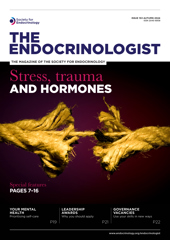In any successful exercise training programme, there is a need to include stress, adaptation and recovery phases. In order to help you to avoid ‘overtraining’ – an action that can lead to extreme fatigue, where recovery can take weeks to years to occur1 – there is a need to balance the stress and recovery phases.
PREVALENCE OF OVERTRAINING
Even if you exercise regularly, it is difficult to know what your risk may be of overtraining. We do know that high level athletes are more likely to suffer from overtraining due to their intense training demands, with studies showing that between 30%2 and 60%3 of athletes experience signs of overtraining. But research that specifically examines how often the average person experiences overtraining is scarce.
The symptoms of overtraining are varied and inconsistent, which therefore makes it difficult to diagnose, but symptoms that are commonly reported include persistent fatigue, decreased performance, mood disturbances and disturbed sleep.1 There is some indication that overtraining can lead to altered hormonal activity. This may be useful, as we could use an endocrine biomarker to highlight the incidence of overtraining.
HORMONAL ALTERATIONS WITH OVERTRAINING?
‘The hormonal changes associated with overtraining, including blunted cortisol and reduced anabolic hormones in response to exercise stress tests, highlight the importance of balanced training and recovery.’
The hypothalamic-pituitary-adrenal (HPA) and hypothalamic-pituitary-gonadal (HPG) axes have been reported to be affected by overtraining. Measurement of the hormone cortisol or its precursor adrenocorticotrophic hormone (ACTH) provides an indicator of HPA activity. We know that both cortisol and ACTH are released when we complete moderate or intense exercise stress.4 The increases in HPA axis hormones from exercise-related stress are typically short-lived; they usually return to baseline concentrations within an hour4 after exercise. Anyone who frequently trains at a high level will therefore repeatedly experience elevated ACTH and cortisol levels due to exercise-related stress.
Work from our laboratory has found that cortisol responses to a high intensity, 30-minute cycle exercise stress test are lowered following a short period (11 days) of intensified exercise.5 This observation, alongside findings from other research,6 suggests that, during periods of overtraining, both ACTH and cortisol concentrations in our blood may be decreased in response to a stressful event – such as exercise.
The response of the HPG axis to a stressor also appears to be blunted following periods of intensified training (i.e. overtraining). In several studies, our laboratory has reported lowered exercise-induced testosterone in blood and saliva when compared before and after intensified training stress periods of 9–12 days.5,7,8 Indeed, a lowered testosterone concentration has previously been reported during periods of intensified training, e.g. training camps or, indeed, over years of exercise training.9 As testosterone holds a crucial role in muscle repair and growth, a deficiency can result in impaired recovery.
MECHANISMS BEHIND THE HORMONAL CHANGES
'By understanding these hormonal mechanisms and implementing strategies to prevent overtraining, athletes can optimise their performance while safeguarding their health.'
The blunted cortisol alterations seen with overtraining may be a protective mechanism for the body, when it is repeatedly exposed to increased cortisol levels. It is likely that a desensitisation of the adrenal glands or a dysfunctional hypothalamus or pituitary gland are the possible cause of the reduction in cortisol. During periods of chronic stress exposure, a suggested cortisol resistance can occur, leading to a lowered cortisol response to stress due to an interplay between the nervous, endocrine and immune systems.10
The lowered testosterone responses seen in periods of overtraining could be due to an exposure to regular elevations of exercise-induced cortisol from the daily training sessions. Cortisol is known to interfere with testosterone’s androgen receptor binding.11 It is also possible that increased testicular vascular resistance leads to a lowering of blood flow and therefore a blunting of testosterone in blood. In addition, from work in an animal model,12 it appears that the pro-dynorphin (Pdyn) gene is upregulated with a period of intensive exercise. This gene inhibits gonadotrophin-releasing hormone and luteinising hormone, which therefore may lead to a reduced testosterone response seen during overtraining.
To conclude, overtraining is a complex syndrome, which can impair athletic performance and health. The hormonal changes associated with overtraining, including blunted cortisol and reduced anabolic hormones in response to exercise stress tests, highlight the importance of balanced training and recovery.
This work also suggests that hormonal biomarkers in response to an exercise stress test may be useful measures to reduce the risk of overtraining. By understanding these hormonal mechanisms and implementing strategies to prevent overtraining, athletes can optimise their performance while safeguarding their health.
JOHN HOUGH
Senior Lecturer in Exercise Physiology, Nottingham Trent University
REFERENCES
- Meeusen R et al. 2013 Medicine & Science in Sports & Exercise https://doi.org/10.1249/MSS.0b013e318279a10a.
- Birrer D et al. 2013 Schweizerische Zeitschrift für Sportmedizin & Sporttraumatologie https://doi.org/10.24451/arbor.11079.
- Kreher JB & Schwartz JB 2012 Sports Health https://doi.org/10.1177/1941738111434406.
- Hough JP et al. 2011 Journal of Strength & Conditioning Research https://doi.org/10.1519/JSC.0b013e3181fef8e7.
- Hough J et al. 2013 Journal of Sport Science https://doi.org/10.1080/02640414.2013.792952.
- Meeusen et al. 2010 British Journal of Sports Medicine https://doi.org/10.1136/bjsm.2008.049981.
- Hough J et al. 2015 International Journal of Sport Physiology & Performance https://doi.org/10.1123/ijspp.2014-0360.
- Leal DV et al. 2021 Brain, Behavior, & Immunity – Health https://doi.org/10.1016/j.bbih.2021.100234.
- Hackney A 2020 Frontiers in Endocrinology https://doi.org/10.3389/fendo.2020.00011.
- Zefferion R et al. 2020 Brain & Behavior https://doi.org/10.1002/brb3.1960.
- Hauger RL et al. 2022 Reviews in Endocrine & Metabolic Disorders https://doi.org/10.1007/s11154-022-09767-0.
- Khajehnasiri N et al. 2018 Journal of Biosciences https://doi.org/10.1007/s12038-018-9782-1.






